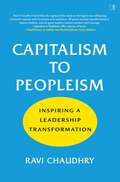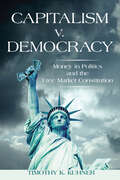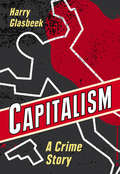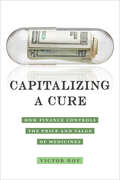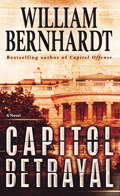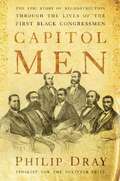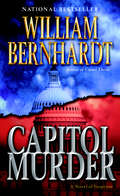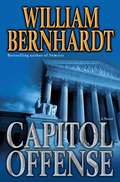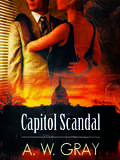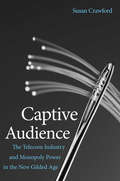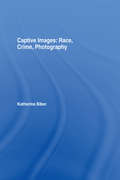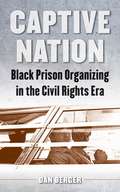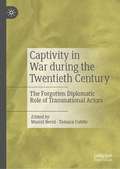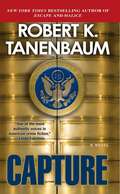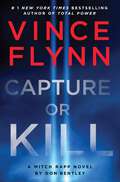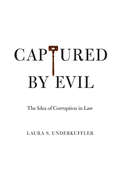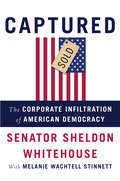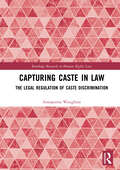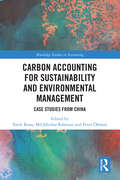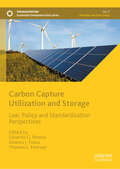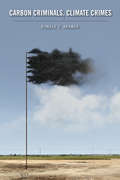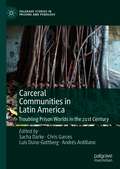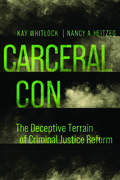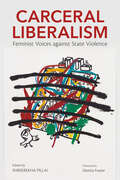- Table View
- List View
Capitalism to Peopleism: Inspiring a Leadership Transformation
by Ravi ChaudhryOur world faces multiple existential challenges. The ways of doing business and governing nations are now dysfunctional and we are traversing the abyss to extinction. This book identifies a credible path to bypass this disaster. It is anchored on a leadership leap from &‘knowledge&’ to &‘wisdom&’, driven by political and business leaders manifesting key traits of awareness, bridge-building, and compassion. We are at a watershed moment in human history. While capitalism is unreformable and set for burial, capitalists (owners of capital) can flourish, provided they embrace the inescapable truism that the primacy of profit must make way for the predominance of people and the planet. This demands a paradigm shift from capitalism to Peopleism—a new system of governance that will nurture true democracy rooted in equity, sustainability, transparency, and justice.Capitalism to Peopleism is not just a game-changer; it is a new game-creator. It evolves the essential features of &‘an economics that works for all&’, emphasizing a growth strategy that discards the myth of &‘trickle-down&’ policies to unveil a &‘surge-up&’ development structure, not in incremental tweaks but through systemic transformation. The book invites you to &‘shape your future before it shapes you&’. It is a book that inspires and empowers everyone who aspires to live in a safer, happier world.
Capitalism v. Democracy: Money in Politics and the Free Market Constitution
by Timothy K. KuhnerAs of the latest national elections, it costs approximately $1 billion to become president, $10 million to become a Senator, and $1 million to become a Member of the House. High-priced campaigns, an elite class of donors and spenders, superPACs, and increasing corporate political power have become the new normal in American politics. In Capitalism v. Democracy, Timothy Kuhner explains how these conditions have corrupted American democracy, turning it into a system of rule that favors the wealthy and marginalizes ordinary citizens. Kuhner maintains that these conditions have corrupted capitalism as well, routing economic competition through political channels and allowing politically powerful companies to evade market forces. The Supreme Court has brought about both forms of corruption by striking down campaign finance reforms that limited the role of money in politics. Exposing the extreme economic worldview that pollutes constitutional interpretation, Kuhner shows how the Court became the architect of American plutocracy. Capitalism v. Democracy offers the key to understanding why corporations are now citizens, money is political speech, limits on corporate spending are a form of censorship, democracy is a free market, and political equality and democratic integrity are unconstitutional constraints on money in politics. Supreme Court opinions have dictated these conditions in the name of the Constitution, as though the Constitution itself required the privatization of democracy. Kuhner explores the reasons behind these opinions, reveals that they form a blueprint for free market democracy, and demonstrates that this design corrupts both politics and markets. He argues that nothing short of a constitutional amendment can set the necessary boundaries between capitalism and democracy.
Capitalism, Corporations and the Social Contract
by Samuel F. MansellIn whose interests should a corporation be run? Over the last thirty years the field of 'stakeholder theory' has proposed a distinctive answer: a corporation should be run in the interests of all its primary stakeholders - including employees, customers, suppliers and financiers - without contradicting the ethical principles on which capitalism stands. This book offers a critique of this central claim. It argues that by applying the political concept of a 'social contract' to the corporation, stakeholder theory in fact undermines the principles on which a market economy is based. The argument builds upon an extensive review of the stakeholder literature and an analysis of its philosophical foundations, particularly concerning the social contract tradition of John Rawls and his predecessors. The book concludes by offering a qualified version of Milton Friedman's shareholder theory as a more justifiable account of the purpose of a corporation.
Capitalism: How Law Shelters Shareholders And Coddles Capitalism
by Harry GlasbeekA mugger to a stranger, “Give me your wallet or I will beat you to pulp!” It is a crime. An employer says to a worker: “Adding lung-saving ventilation will reduce my profit. Give me back some of your wages and I will let you keep your lungs!” This is not a crime. Our assumptions about the world condition us to see these situations as legally different from one another. But what if we, the critics of corporate capitalism, instead insisted on taking the spirit of law, rather than its letter, seriously? It would then be possible to describe many of the daily practices of capitalists and their corporations as criminal in nature, even if not always criminal by the letter and formality of law. In Capitalism: A Crime Story, Harry Glasbeek makes the case that if the rules and doctrines of liberal law were applied as they should be according to law’s own pronouncements and methodology, corporate capitalism would be much harder to defend.
Capitalizing a Cure: How Finance Controls the Price and Value of Medicines
by Victor RoyA free open access ebook is available upon publication. Learn more at www.luminosoa.org.Capitalizing a Cure takes readers into the struggle over a medical breakthrough to investigate the power of finance over business, biomedicine, and public health. When curative treatments for hepatitis C launched in 2013, sticker shock over their prices intensified the global debate over access to new medicines. Weaving historical research with insights from political economy and science and technology studies, Victor Roy demystifies an oft-missed dynamic in this debate: the reach of financialized capitalism into how medicines are made, priced, and valued. Roy’s account moves between public and private labs, Wall Street and corporate board rooms, and public health meetings and health centers to trace the ways in which curative medicines became financial assets dominated by strategies of speculation and extraction at the expense of access and care. Provocative and sobering, this book illuminates the harmful impact of allowing financial markets to determine who heals and who suffers and points to the necessary work of building more equitable futures.
Capitol Betrayal (Ben Kincaid Series #18)
by William BernhardtWilliam Bernhardt's bestselling novels explore politics, power, ambition, crime, and the law. Now he scales new heights of suspense as, in one harrowing day, lawyer and former senator Ben Kincaid enters the eye of an international storm, a crisis with consequences beyond calculation. Kincaid is in a meeting with the president in the Oval Office when Washington suddenly explodes into chaos. Facing an imminent threat to the White House, Kincaid is whisked, along with the president and his advisors, to the underground PEOC-Presidential Emergency Operations Center-built to withstand a nuclear blast, but vulnerable to another kind of attack. Inside the bunker, defense specialists realize that a malevolent foreign dictator has hacked into the U. S. nuclear defense system and now has a finger on the trigger of America's most dangerous weapons. The dictator's message is clear: Heed his demands or suffer unfathomable destruction. Forced to make critical, split-second decisions, the president seems to be falling apart under the pressure. The vice president wants to strip him of his powers-a move that could have a disastrous impact on national defense. But even during this time of upheaval, in order for the president to be removed, there must be a trial. With the clock winding down, Kincaid has precious little time to defend the president. While Kincaid faces the trial of his life, legendary CIA agent Seamus McKay races through the clogged streets of Washington, searching for a hidden command center-guarded by murderous fanatics-that now controls U. S. ballistic missiles. Two sides of one unforgettable story, McKay and Kincaid home in on their targets. One uses a gun-and any weapon he can get his hands on; the other employs his intuition and the law. And in William Bernhardt's spectacular thriller, as both move closer and closer to uncovering a world-shattering plot, the ultimate act of betrayal is launched from the heart of America's capitol itself.
Capitol Men: The Epic Story of Reconstruction through the Lives of the First Black Congressmen
by Philip DrayReconstruction was a time of idealism and sweeping change, as the victorious Union created citizenship rights for the freed slaves and granted the vote to black men. Sixteen black Southerners, elected to the U.S. Congress, arrived in Washington to advocate reforms such as public education, equal rights, land distribution, and the suppression of the Ku Klux Klan.
Capitol Murder: A Novel (Ben Kincaid Ser. #14)
by William BernhardtWilliam Bernhardt’s bestselling novels featuring Oklahoma defense attorney Ben Kincaid capture the bare-knuckles reality of high-stakes criminal defense, as lofty ideals of justice clash with power, corruption, and wealth. In Capitol Murder, Bernhardt’s hard-charging hero takes on his most shocking, headline-making case yet. Kincaid’s legal success has earned him a dubious reward: a journey through the looking glass into the Beltway. Here, in the heart of the nation’s capital, a powerful U. S. senator has been caught first in a sordid sex scandal, then in a case of murder. Senate aide Veronica Cooper was found in a secret Senate office beneath the Capitol building, on Senator Todd Glancy’s favorite couch, blood pouring from the knife wound in her throat. The young woman’s death comes on the heels of the release of a sordid videotape depicting her and Senator Glancy in compromising positions. With the senator’s reputation in tatters, the evidence against him–as a sexual predator and possibly a killer–mounts. By the time a nationally televised murder trial begins, Kincaid and his team know they’re facing the challenge of a lifetime. According to public opinion, and even in Kincaid’s most private thoughts, Glancy is one more politician who cannot admit his own culpability. But while a dramatic trial unfolds in the courtroom–loaded with pitfalls, traps, and an astounding betrayal–another trial is taking place on the mean streets of D. C. , as Kincaid’s investigator pursues a young woman who was a friend of Veronica Cooper’s, plunging Kincaid into a bizarre world of Goths, sadomasochists, and a community of self-proclaimed vampires. Somewhere in this violent underworld lies the secret behind Veronica Cooper’s demise . . . and the crux of Senator Glancy’s innocence or guilt. In a case that pits Kincaid and his freewheeling partner Christina McCall against the brutal machinery of Washington politics, the answers they seek are hidden in a murderous maze of lies and hidden motives. And in William Bernhardt’s best novel yet, getting to the truth is an unparalleled experience in pure, satisfying suspense. From the Hardcover edition.
Capitol Offense (Ben Kincaid Series #17)
by William BernhardtIn his thrilling novels of suspense, William Bernhardt takes us into the fault lines of the criminal system, where one mistake, a twist of fate, or an explosive secret can mean the difference between justice and its cataclysmic undoing. In Capitol Offense, attorney Ben Kincaid stands amid the chaos of a violent collision between vengeance and death--and it's up to him to discover where the truth lies. Professor Dennis Thomas arrives at the law office of Ben Kincaid with a bizarre request: Thomas wants to know if Kincaid can help him beat a murder charge--of a killing yet to happen. The professor's intended victim: a Tulsa cop who had refused to authorize a search for Thomas's missing wife. For seven days, Joslyn Thomas had lain in the twisted wreckage of her car, dying a horrifically slow death in an isolated ravine. Now, insane with grief, Thomas wants to kill Detective Christopher Sentz. Kincaid warns him not to, but that very same day someone fires seven bullets into the police officer. Suddenly Kincaid's conversation with Thomas is privileged and Thomas is begging Kincaid to defend him. Thomas claims he didn't shoot Sentz--even though he'd wanted to. Something about the bookish, addled Dennis Thomas tugs on Kincaid's conscience, and against all advice he decides to represent this troubled man in the center of a media and political firestorm. But the trial doesn't go Kincaid's way, and a verdict of capital murder is bearing down on Dennis Thomas?' That's when Kincaid's personal private detective) Loving,. starts prying loose pieces of a shocking secret. Working shadows of the law, using every trick that Loving risks his life to construct an entirely narrative about Detective Sentz, Joslyn Thomas, and madness in another guise: the kind that every citizen should fear, and no one will recognize--until it is too late." There are over fifteen more novels in the Ben Kincaid series in the Bookshare collection. Kincaid is an Oklahoman lawyer with a mission to prove to his father that in pursuing his career as a defense lawyer, he can make the world a better place, one case at a time.
Capitol Scandal
by Rebecca Mitchell A. W. GrayThe crime: murder. The accused: a wealthy Texas congressman. The victim: a young intern with whom he was having an affair. Attorney Sharon Hays is reluctant to defend this charismatic politician--for highly personal reasons. Now she must either withdraw from the case, confessing to the secrets of her own past, or remain silent and defend a man she has every reason to hate.
Captive Audience
by Susan P. CrawfordTen years ago, the United States stood at the forefront of the Internet revolution. With some of the fastest speeds and lowest prices in the world for high-speed Internet access, the nation was poised to be the global leader in the new knowledge-based economy. Today that global competitive advantage has all but vanished because of a series of government decisions and resulting monopolies that have allowed dozens of countries, including Japan and South Korea, to pass us in both speed and price of broadband. This steady slide backward not only deprives consumers of vital services needed in a competitive employment and business market--it also threatens the economic future of the nation.This important book by leading telecommunications policy expert Susan Crawford explores why Americans are now paying much more but getting much less when it comes to high-speed Internet access. Using the 2011 merger between Comcast and NBC Universal as a lens, Crawford examines how we have created the biggest monopoly since the breakup of Standard Oil a century ago. In the clearest terms, this book explores how telecommunications monopolies have affected the daily lives of consumers and America's global economic standing.
Captive Images: Race, Crime, Photography
by Katherine BiberCaptive Images examines the law’s treatment of photographic evidence and uses it to investigate the relationship between law, image and fantasy. Based around the scholarly examination of a bank robbery, in which a surveillance camera captures the robbery in progress, Katherine Biber draws upon critical writing from psychoanalysis, postcolonialism, art, law, literature and feminism to 'read' this crime, its texts and its images. The result is an interdisciplinary study of crime that unfolds a compelling narrative about race relations, national identity and fear. This book is an essential read for all levels of law students studying, or interested in, law, criminology and cultural studies.
Captive Nation
by Dan BergerIn this pathbreaking book, Dan Berger offers a bold reconsideration of twentieth century black activism, the prison system, and the origins of mass incarceration. Throughout the civil rights era, black activists thrust the prison into public view, turning prisoners into symbols of racial oppression while arguing that confinement was an inescapable part of black life in the United States. Black prisoners became global political icons at a time when notions of race and nation were in flux. Showing that the prison was a central focus of the black radical imagination from the 1950s through the 1980s, Berger traces the dynamic and dramatic history of this political struggle. The prison shaped the rise and spread of black activism, from civil rights demonstrators willfully risking arrests to the many current and former prisoners that built or joined organizations such as the Black Panther Party. Grounded in extensive research, Berger engagingly demonstrates that such organizing made prison walls porous and influenced generations of activists that followed.
Captivity in War during the Twentieth Century: The Forgotten Diplomatic Role of Transnational Actors
by Marcel Berni Tamara CubitoThis book offers new international perspectives on captivity in wartime during the twentieth century. It explores how global institutions and practices with regard to captives mattered, how they evolved and most importantly, how they influenced the treatment of captives. From the beginning of the twentieth century, international organisations, neutral nations and other actors with no direct involvement in the respective wars often had to fill in to support civilian as well as military captives and to supervise their treatment. This edited volume puts these actors, rather than the captives themselves, at the centre in order to assess comparatively their contributions to wartime captivity. Taking a global approach, it shows that transnational bodies - whether non-governmental organisations, neutral states or individuals - played an essential role in dealing with captives in wartime. Chapters cover both the largest wars, such as the two World Wars, but also lesser-known conflicts, to highlight how captives were placed at the centre of transnational negotiations.
Capture (A Butch Karp-Marlene Ciampi Thriller #21)
by Robert K. TanenbaumWhen a rising starlet from Spanish Harlem dies from a gunshot wound in the fashionable downtown penthouse of an eccentric and famous Broadway producer, New York District Attorney Roger "Butch" Karp and his hard-charging, crime-fighting wife, Marlene Ciampi, smell drama. Karp is outraged at claims by the producer and his high-powered attorney that the "troubled" actress committed suicide. With the help of a fearful witness who Marlene convinces to speak out, Karp wages a relentless battle for justice against a notorious defendant, a legion of experts, and a barrage of hostile threats. Meanwhile, a shadowy international power group called the Sons of Man kidnaps Karp's daughter, Lucy, as she attempts to thwart the latest terrorist threat against New York City. Karp races to decode a baffling series of riddles left behind by the group's mastermind, his longtime enemy, to uncover the terrorists' true target and save Lucy from certain death. The key may lie within the fevered mind of David Grale, a half-mad religious vigilante who has mysteriously retreated beneath the city. Hunted by a beautiful but deadly Russian assassin, Karp and his eclectic band of accomplices must infiltrate the Sons of Man before the group's scheme for world dominion succeeds. But, little does Karp know: the clock is ticking down on New York City as an invisible force prepares to unleash Armageddon. With more than twelve million copies of his books in print, Robert K. Tanenbaum is a true "master of the legal thriller" (Vincent Bugliosi) whose yanked-from-the-headlines adventures keep readers rapt until each breathtaking conclusion.
Capture or Kill (A Mitch Rapp Novel #23)
by Vince Flynn Don BentleyPREORDER DENIED ACCESS, THE NEWEST PULSE-POUNDING THRILLER IN THE NEW YORK TIMES BESTSELLING MITCH RAPP SERIES, COMING THIS SEPTEMBER.As war looms in the Middle East, only Mitch Rapp can deliver truth and justice. 2011. On a remote mountaintop overlooking the remains of the Iranian nuclear weapons programme, Azad Ashani witnesses a Quds Force demonstration of a capability meant to upend America&’s war in the Middle East. Ashani, director of the Iranian Ministry of Intelligence and Security and Irene Kennedy&’s former back channel to the Iranian government, recognises the demonstration&’s true significance and the nation-ending conflict it will provoke. In Washington, DC, CIA director Irene Kennedy briefs the president that the operational window to kill or capture Osama bin Laden is rapidly closing. But before he&’ll authorise a commando raid on Pakistani soil, the president demands irrefutable proof of bin Laden&’s presence. Proof he trusts just one man to provide. Praise for the Mitch Rapp series &‘Grabs you by the scruff of the neck on page one and doesn&’t let you go until the end&’ Stephen Leather &‘Sizzles with inside information and CIA secrets&’ Dan Brown &‘A cracking, uncompromising yarn that literally takes no prisoners&’ The Times &‘Vince Flynn clearly has one eye on Lee Child's action thriller throne with this twist-laden story . . . instantly gripping&’ Shortlist &‘Action-packed, in-your-face, adrenalin-pumped super-hero macho escapist fiction that does exactly what it says on the label&’ Irish Independent &‘Mitch Rapp is a great character who always leaves the bad guys either very sorry for themselves or very dead&’ Guardian
Captured by Evil
by Laura S. UnderkufflerOne of the most powerful words in the English language, "corruption" is also one of the most troubled concepts in law. According to Laura Underkuffler, it is a concept based on religiously revealed ideas of good and evil. But the notion of corruption defies the ordinary categories by which law defines crimes—categories that punish acts, not character, and that eschew punishment on the basis of religion and emotion. Drawing on contemporary examples—including former assemblywoman Diane Gordon and former governor Rod Blagojevich—Underkuffler explores the implications and dangers of maintaining such an archaic concept at the heart of criminal law. "Underkuffler challenges the traditional rational and logical characterizations of corruption and defends a highly original and insightul proposal. In her view corruption is an emotional concept grounded in religious ideas defying traditional criminal law doctrines. This book is a fantastic contribution to the study of corruption as well as more generally to the study of law and culture. "—Alon Harel, Hebrew University Law School
Captured: The Corporate Infiltration of American Democracy
by Sheldon Whitehouse Melanie Wachtell StinnettIn Captured, U.S. Senator and former federal prosecutor Sheldon Whitehouse offers an eye-opening take on what corporate influence looks like today from the Senate Floor, adding a first-hand perspective to Jane Mayer’s Dark Money. Americans know something is wrong in their government. Senator Whitehouse combines history, legal scholarship, and personal experiences to provide the first hands-on, comprehensive explanation of what's gone wrong, exposing multiple avenues through which our government has been infiltrated and disabled by corporate powers. Captured reveals an original oversight by the Founders, and shows how and why corporate power has exploited that vulnerability: to strike fear in elected representatives who don’t "get right” by threatening million-dollar "dark money" election attacks (a threat more effective and less expensive than the actual attack); to stack the judiciary—even the Supreme Court—in "business-friendly" ways; to "capture” the administrative agencies meant to regulate corporate behavior; to undermine the civil jury, the Constitution's last bastion for ordinary citizens; and to create a corporate "alternate reality" on public health and safety issues like climate change. Captured shows that in this centuries-long struggle between corporate power and individual liberty, we can and must take our American government back into our own hands.
Capturing Caste in Law: The Legal Regulation of Caste Discrimination (Routledge Research in Human Rights Law)
by Annapurna WaughrayThis book will examine the legal regulation of caste discrimination in three key legal spheres: in India (the world’s largest caste-affected country and the country with the greatest experience of using law to tackle such discrimination); in international human rights law; and in Britain, the first European country to introduce a prohibition of caste discrimination in domestic equality law. It aims to present a coherent account of the role of law initially in the construction of caste inequality and discrimination, and subsequent legal efforts to address such discrimination. The gaps in existing law, domestic and international, in relation to caste discrimination will be identified and examined. The book will adopt a jurisdiction by jurisdiction / sphere by sphere approach which in practice is broadly chronological approach. First it will examine how the concept of caste and the phenomenon of discrimination and inequality on grounds of caste have been defined, constructed and addressed by law. It will trace the evolution of the religious, social and legal rationales for caste discrimination in India, and conversely the evolution in India of legal remedies for its elimination. Caste is a complex social phenomenon, and this book will explain and address the legal challenges of capturing caste in national and international law. In doing so it will examine the advantages and limitations of existing legal analyses and frameworks for tackling discrimination based on caste. The book will be of great interest to academics and students of human rights law, equality and discrimination law, international human rights law, minority rights and area studies (South Asia and its diaspora). It will also be of relevance to practitioners and those in the public and NGO sectors involved in the implementation and enforcement of equality law in the UK.
Carbon Accounting for Sustainability and Environmental Management: Case Studies from China (Routledge Studies in Accounting)
by Tarek Rana Peter Öhman Md Jahidur RahmanAs the world increasingly focuses on sustainability and climate justice, this book sets the scene by establishing the significance of carbon accounting in today’s environmental management practices.It provides a comprehensive exploration of the subject, with a specific focus on the Chinese context and sheds light on how carbon accounting practices are being integrated into corporate and national strategies. While the book has a strong focus on empirical realities in China, its exploration of carbon accounting and environmental management holds international importance. The book bridges the gap between theory and practice, offering readers in-depth insights into the intricate dynamics of carbon accounting and its implications for sustainable development, drawing on data and case studies to provide practical insights into the effectiveness of various carbon accounting approaches and their impact on environmental sustainability. It focuses on the crucial role of the development of green accounting, its future growth, and its wider impact on climate change. Additionally, the book examines how accurate tracking and reporting of carbon emissions are integral to developing effective environmental strategies and evolving environmental policies. Accompanied by real-world case studies and actionable recommendations, this book is a valuable resource for anyone navigating the intricate landscape of carbon accounting and reporting, offering a road map to informed strategic decision-making and sustainable business practices.It will be particularly beneficial for professionals in environmental management, policy formulation, and corporate sustainability, as it translates complex carbon accounting concepts into tangible, practical strategies.
Carbon Capture Utilization and Storage: Law, Policy and Standardization Perspectives (Sustainable Development Goals Series)
by Eduardo G. Pereira Alberto J. Fossa Thomas L. MuinzerThis book delves into how carbon capture, utilization, and storage (CCUS) technologies might help accelerate the worldwide transition to sustainable energy while meeting Paris Agreement targets. This comprehensive handbook examines how governments, businesses, and society may effectively implement CCUS programs to cut carbon emissions and promote economic development. The book begins with basic ideas and exposes readers to CCUS technologies and their critical role in reaching net-zero emissions by 2050. It investigates successful CCUS installations from various countries and suggests prospects for host governments and energy firms. The book combines technical innovation and carbon neutrality initiatives, while also addressing regulatory frameworks and normative factors that are critical for wider acceptance. With climate change mitigation at its core, the book offers pragmatic recommendations for policymakers and industry leaders on how to employ CCUS for sustainable development, making it a valuable resource for environmental researchers, energy professionals, and policymakers working toward a low-carbon economy.
Carbon Criminals, Climate Crimes (Critical Issues in Crime and Society)
by Ronald C. KramerCarbon Criminals, Climate Crimes analyzes the looming threats posed by climate change from a criminological perspective. It advances the field of green criminology through a examination of the criminal nature of catastrophic environmental harms resulting from the release of greenhouse gases. The book describes and explains what corporations in the fossil fuel industry, the U.S. government, and the international political community did, or failed to do, in relation to global warming. Carbon Criminals, Climate Crimes integrates research and theory from a wide variety of disciplines, to analyze four specific state-corporate climate crimes: continued extraction of fossil fuels and rising carbon emissions; political omission (failure) related to the mitigation of these emissions; socially organized climate change denial; and climate crimes of empire, which include militaristic forms of adaptation to climate disruption. The final chapter reviews policies that could mitigate greenhouse gas emissions, adapt to a warming world, and achieve climate justice.
Carceral Communities in Latin America: Troubling Prison Worlds in the 21st Century (Palgrave Studies in Prisons and Penology)
by Sacha Darke Chris Garces Luis Duno-Gottberg Andrés AntillanoThis book gathers the very best academic research to date on prison regimes in Latin America and the Caribbean. Grounded in solid ethnographic work, each chapter explores the informal dynamics of prisons in diverse territories and countries of the region – Venezuela, Brazil, Bolivia, Honduras, Nicaragua, Colombia, Puerto Rico, Dominican Republic – while theorizing how day-to-day life for the incarcerated has been forged in tandem between prison facilities and the outside world. The editors and contributors to this volume ask: how have fastest-rising incarceration rates in the world affected civilians’ lives in different national contexts? How do groups of prisoners form broader and more integrated ‘carceral communities’ across day-to-day relations of exchange and reciprocity with guards, lawyers, family, associates, and assorted neighbors? What differences exist between carceral communities from one national context to another? Last but not least, how do carceral communities, contrary to popular opinion, necessarily become a productive force for the good and welfare of incarcerated subjects, in addition to being a potential source of troubling violence and insecurity? This edited collection represents the most rigorous scholarship to date on the prison regimes of Latin America and the Caribbean, exploring the methodological value of ethnographic reflexivity inside prisons and theorizing how daily life for the incarcerated challenges preconceptions of prisoner subjectivity, so-called prison gangs, and bio-political order.Sacha Darke is Senior Lecturer in Criminology at University of Westminster, UK, Visiting Lecturer in Law at University of São Paulo, Brazil, and Affiliate of King’s Brazil Institute, King’s College London, UK.Chris Garces is Research Professor of Anthropology at Universidad San Francisco de Quito, Ecuador, and Visiting Lecturer in Law at Universidad Andina Simón Bolivar, Ecuador.Luis Duno-Gottberg is Professor at Rice University, USA. He specializes in Caribbean culture, with emphasis on race and ethnicity, politics, violence, and visual culture.Andrés Antillano is Professor in Criminology at Universidad Central de Venezuela, Venezuala.
Carceral Con: The Deceptive Terrain of Criminal Justice Reform
by Kay WhitlockA critical examination of how contemporary criminal justice reforms expand rather than shrink structurally violent systems of policing, surveillance, and carceral control in the United States. Public opposition to the structural racist, gendered, and economic violence that fuels the criminal legal system is reaching a critical mass. Ignited by popular uprisings, protests, and campaigns against state violence, demands for transformational change have escalated. In response, a now deeply entrenched so-called bipartisan industry has staked its claim to the reform terrain. Representing itself as a sensible bridge across bitterly polarized political divides and party lines, the bipartisan reform industry has sought to control the nature and scope of local, state, and federal reforms. Along the way, it creates an expanding web of neoliberal public-private partnerships, with the promotion and implementation of efforts managed by billionaires, public officials, policy factories, foundations, universities, and mega nonprofit organizations. Yet many bipartisan reforms constitute deceptive sleights of hand that not only fail to produce justice but actively reproduce structural racial and economic inequality. Carceral Con pulls the veil away from the reform public relations machine, providing a riveting overview of the repressive US carceral state and a critical examination of the reform terrain, quagmires, and choices that face us. This book vividly illustrates how contemporary bipartisan reform agendas leave the structural apparatus of mass incarceration intact while widening the net of carceral control and surveillance. Readers are also provided with information and insights useful for examining the likely impacts of reforms today and in the future. What can we learn from reforms of the past? What strategies hold most promise for dismantling structural inequalities, corporate control, and state violence? What approaches will reduce reliance on carceral control and also bring about community safety? Utilizing an abolitionist lens, Carceral Con makes the compelling case for liberatory approaches to envisioning and creating a just society.
Carceral Liberalism: Feminist Voices against State Violence (Dissident Feminisms)
by Alka Kurian Tria Blu Wakpa Cassandra D Little Shailza Sharma Joanna Eleftheriou Beth Matusoff Merfish Francisco Arguelles Paz y Puente Autumn Elizabeth Zarinah Agnew D Coulombe Jennifer Musial Maria F Curtis Marta Romero-DelgadoOne of Ms. Magazine's Most Anticipated Books of 2023 Carceral liberalism emerges from the confluence of neoliberalism, carcerality, and patriarchy to construct a powerful ruse disguised as freedom. It waves the feminist flag while keeping most women still at the margins. It speaks of a post-race society while one in three Black men remain incarcerated. It sings the praises of capital while the dispossessed remain mired in debt. Shreerekha Pillai edits essays on carceral liberalism that continue the trajectory of the Combahee River Collective and the many people inspired by its vision of feminist solidarity and radical liberation. Academics, activists, writers, and a formerly incarcerated social worker look at feminist resurgence and resistance within, at the threshold of, and outside state violence; observe and record direct and indirect forms of carcerality sponsored by the state and shaped by state structures, traditions, and actors; and critique carcerality. Acclaimed poets like Honorée Fanonne Jeffers and Solmaz Sharif amplify the volume’s themes in works that bookend each section. Cutting-edge yet historically grounded, Carceral Liberalism examines an American ideological creation that advances imperialism, anti-blackness, capitalism, and patriarchy. Contributors: Maria F. Curtis, Joanna Eleftheriou, Autumn Elizabeth and Zarinah Agnew and D Coulombe, Jeremy Eugene, Demita Frazier, Honorée Fanonne Jeffers, Alka Kurian, Cassandra D. Little, Beth Matusoff Merfish, Francisco Argüelles Paz y Puente, Shreerekha Pillai, Marta Romero-Delgado, Ravi Shankar, Solmaz Sharif, Shailza Sharma, Tria Blu Wakpa and Jennifer Musial, Javier Zamora
